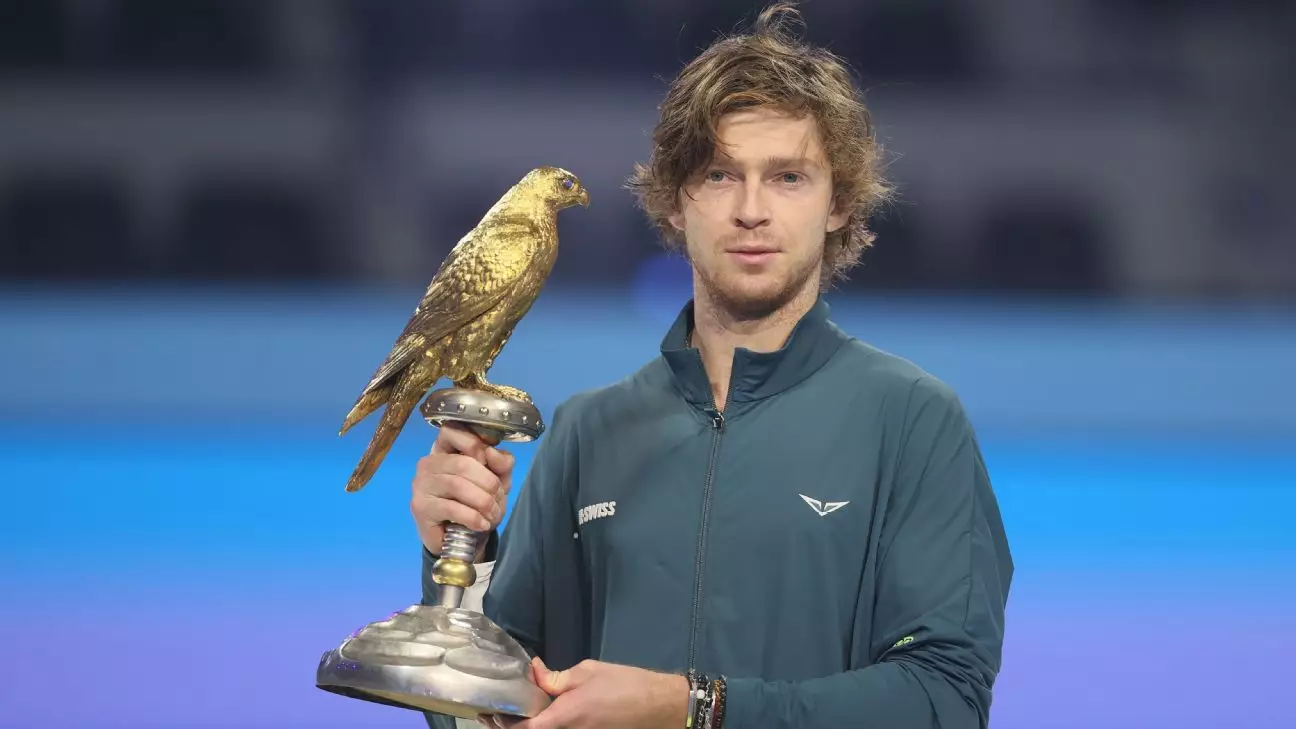In the world of tennis, where physical prowess often takes center stage, Andrey Rublev’s recent victory at the Qatar Open reveals that mental resilience plays an equally critical role. Battling through a challenging matchup against Jack Draper, Rublev clinched the title with a scoreline of 7-5, 5-7, 6-1, marking his second title in Doha and 17th overall in his professional career. What stood out most in his performance was not merely his exceptional shot-making or athleticism, but rather his ability to maintain mental clarity amid the pressures of the game.
Rublev’s assertion that he successfully managed his frustration is crucial in understanding his success. The ability to regroup mentally after losing momentum, as he did when dropped the second set, is an invaluable trait in high-stakes sports. It reiterates the importance of psychological flexibility—being able to navigate emotional turbulence and return to one’s baseline performance level.
Rublev’s journey through the Qatar Open was no walk in the park; he faced intense competition, playing three grueling three-set matches over the course of the tournament. Having already had to contend with both Alex de Minaur and Felix Auger-Aliassime, Tiger faced not only physical fatigue but also the mental strain that accompanies such grueling contests. Yet, he emerged victorious, attributing his success to a knack for re-centering himself when faced with lapses in performance.
“I was really good mentally and didn’t let frustration get over me,” Rublev remarked, embodying the key lesson for aspiring athletes: resilience can often tip the scales in close matches. His experience underscores the reality that top athletes require an arsenal of mental strategies to complement their physical abilities.
Despite the heart-wrenching defeat against Rublev, Jack Draper’s journey through the tournament was remarkable. He showcased grit and determination, which will undoubtedly serve him well as he climbs to a career-high ranking of No. 12 on the ATP Tour this coming Monday. Draper’s commendation of his own performance speaks volumes; he seemed unfazed by the setbacks encountered in the final match. His strategy of focusing on the positives, even after facing Rublev, represents a mature approach reflective of his experiences throughout the tournament.
Draper’s acknowledgment that the third set was dominated by Rublev resonates with the spirit of sportsmanship—a reminder that setbacks often pave the way for future growth and improvement. The journey doesn’t end with a single loss; it opens doors to learn from all aspects of competition.
Rublev’s victory at the Qatar Open was a synergistic blend of physical skill and mental preparation. His triumph over Jack Draper highlights not just the importance of physical conditioning, but also the critical nature of mental fortitude in competitive sports. As both athletes continue to evolve in their careers, their experiences from this tournament will undoubtedly shape their futures, serving as a reminder that mastery in tennis—and life—lies in the delicate balance between physical capability and mental resilience.


Leave a Reply